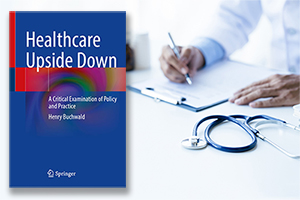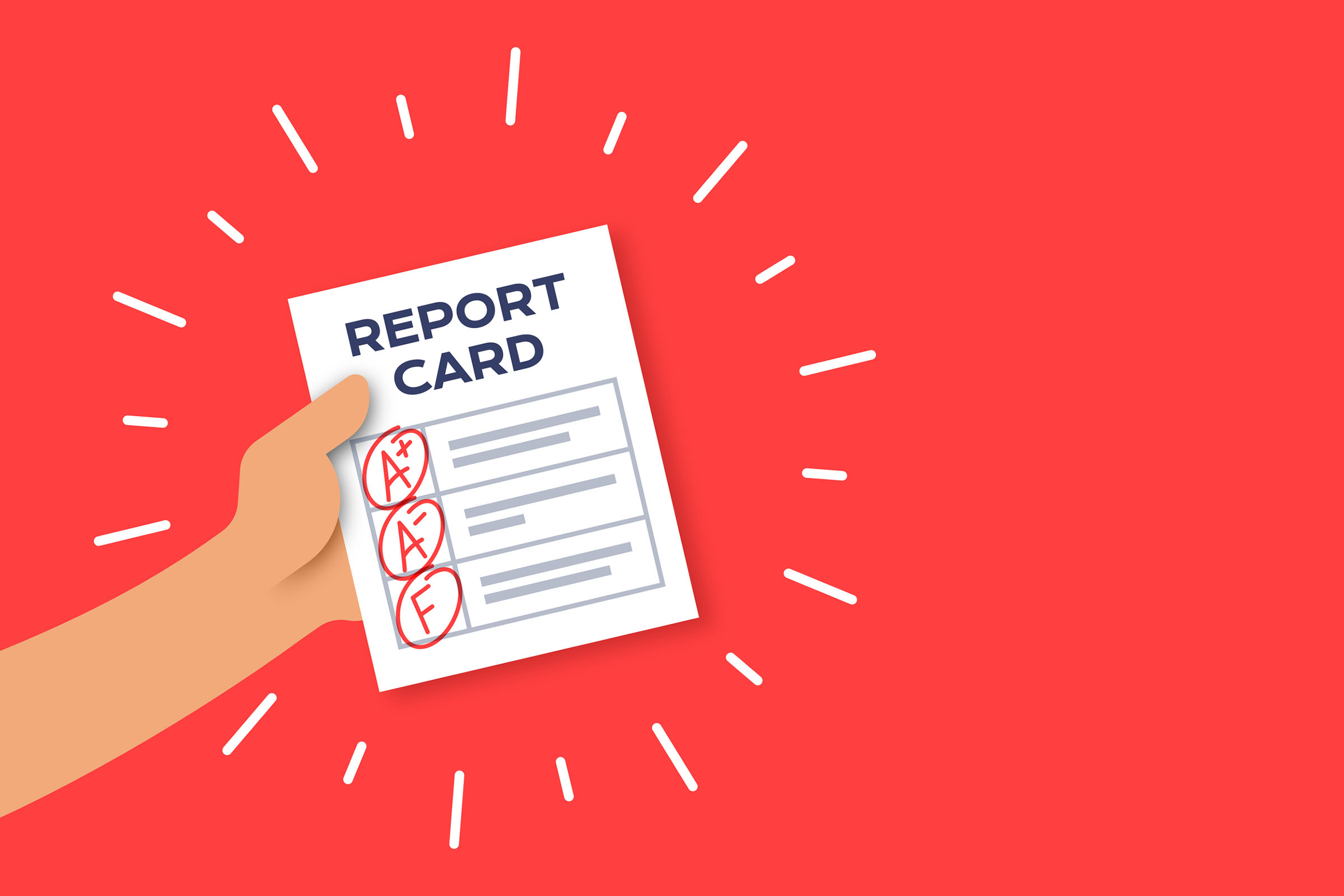Henry Buchwald, MD, PhD was a recent guest on my Intelligent Medicine podcast. His book Healthcare Upside Down: A Critical Review of Policy and Practice, is a clarion call for changing the direction of our healthcare delivery system.
As Walter Cronkite once said: “America’s healthcare system is neither healthy, caring, nor a system.”
Dr. Buchwald is a witness to the dramatic transformations that have occurred during his 50-year medical career. He is a pioneer in bariatric surgery, having authored over 360 peer-reviewed studies and more than 100 medical text chapters and books. He holds 20 patents for novel bio-engineering devices and has served as president of five surgical organizations. He’s also a recognized authority on the history of medicine. With that perspective, he laments the trends that have overtaken the US medical system.
Buchwald notes we’re not getting enough bang-for-our-buck with outsized medical expenses and mediocre medical outcomes:
“The USA has a proud history of medical firsts. We have the largest number of Nobel Laureates in Physiology or Medicine, in technologic advancements, and in the highest quality of healthcare—for certain individuals. At the same time, we are not world leaders, not even close, when we examine the global statistics of life expectancy, mortality rate, potential life lost years, specific diseases mortality, infant mortality, derived amenable mortality to healthcare, healthcare access and quality index, and availability of healthcare. These are the parameters used to measure healthcare and in all of them, given our potential, we are failures, losers in comparison to comparable industrial nations. Yet, we pay much more in dollars per capita and in percentage of our gross national product (GNP) for healthcare than any other nation.”
A major reason for this, Buchwald claims, is our enshrinement of what he calls “the administocracy”—a layer of bureaucracy with outsized salaries and undue discretion over medical decision-making:
“The administocracy controls appointments, resources, income, and, above all, the employment status of today’s provider/employee. By obtaining the authority to hire and to fire, the administration possesses ultimate power . . . The administocracy today is medicine’s ruling class. They view leadership as separate from patient care, research, and public health . . . Leadership has been assumed by an administocracy, and physicians have been relegated to revenue-providing assets within a system that processes clients to achieve maximum income for the firm.”
The very language of medicine has changed, with Orwellian implications for quality of care: Doctors have yielded to “providers”, as if members of a healthcare team with disparate credentials were interchangeable cogs within a care delivery machine; patients have become “clients” as if medical care were an ordinary service-delivery business like landscaping or interior design; the doctor’s office has been supplanted by “the organization”, a business entity with stockholders or private equity investors who prioritize profits over service.
The results, inevitably, are the fragmentation and impersonalization of the medical experience: “In today’s world, outpatient care in clinics and partners’ offices has become increasingly impersonal, with decreased physician contact, selection of caregivers made by the organization, key providers of care made interchangeable, and appointments based on a business model, not necessarily on patient need.”
Physicians have been complicit in abdication of their status and autonomy, Buchwald writes, by relenting to the temptation to relegate increasingly complicated business logistics to the administocracy in return for steady hours, generous vacation time, and assured salaries—a lifestyle choice.
Despite improved working conditions and relief from the burden of entrepreneurship, the rate of burnout among health professionals is increasing. That may stem from the demoralization caused by less fulfilling careers, constrained by the diktats of non-clinicians. I hear the same from many of my fellow graduates of the medical class of ‘83: Having started out in private practice, many gradually became employees of hospitals or care organizations. They still love medicine—but it’s less fun than it used to be, and they’re more hemmed in by bureaucratic strictures, their status diminished, forced to spend less time in each patient encounter, beholden to insurance companies.
Buchwald experienced first-hand the fragmentation and depersonalization of medicine after an accident left him with multiple traumatic injuries:
“For the first time in my life, at age 83, I was bucked off a horse in 2016 at a ranch in Tucson. I broke eleven ribs on my right side, four in two places, sustained a comminuted fracture of the right scapula, and, in addition, had a hemothorax, a contused lung, with my heart pushed slightly to the left, and a blood loss from 15.6 to 11.6 g/dL. I was taken to the nearest hospital by ambulance and spent 7 hours in the Emergency Room without care until the first hospitalist to see me passed me on to the next-in-line hospitalist, who admitted me to the monitored, intensive care, step-down unit for the next 18 days. There I was seen by different hospitalists daily. I was never introduced to the head of the unit, if there was one.
While in this unit, I was visited by several consulting cardiologists and pulmonologists, only when they decided to look in on me and not when I requested a visit. I was a metric in the files, database, and statics of the private company, the firm, that owned the hospital. I was often misdiagnosed, given the wrong drugs or dosage, had complications that were totally avoidable, and was denied essential respiratory care until acting as my own doctor I insisted upon it. Members of my family took shifts, day and night, never leaving me alone, to protect and to advocate for me. They kept records of my medicines and often prevented me from being overdosed or underdosed, and they maintained a continual watch on my oxygen saturation. For real medical care, I consulted by phone with an intensive care physician in Minneapolis in the evenings and received sound medical advice through visits and telephone conversations with another trusted physician friend.”
Buchwald challenges the very concept of health insurance:
“Paying in advance blindly to purchase quality of life, and possibly the avoidance of death, is a financial blunder. Even more importantly, it is an abrogation of responsibility for the healthcare and well-being of the family. The American way involves freedom of choice. The patient (not client) should have the right to select a person-to-person relationship rather than a mechanized system of healthcare.”
But the answer, according to Buchwald is neither expensive “concierge medicine”, which leaves the needy behind; nor is it socialized medicine.
To paraphrase Winston Churchill: “Capitalism is the worst economic system—except for all the others.”
America is unique among advanced industrialized countries in leaving gaps for the disadvantaged in terms of medical care. Many western democracies have adopted single-payer systems. But Buchwald contends that our health care system is a perverse hybrid, already 60% socialized, with all of the disadvantages associated with rationed, substandard care, paradoxically co-existing with rampant crony capitalism, with lucrative sinecures assured for vast corporate entities. The incentives are aligned to favor expensive drug fixes over low-cost prevention via lifestyle modifications. Instead he urges:
“We must eliminate second class healthcare in all segments of our population. We must make healthcare a right for all, rather than a realm for profiteering. Just as we believe that no one is above the law in our land, no one should experience less than the best available healthcare our country can provide. If we take pride in being ‘first among nations,’ first in uniform healthcare should be our goal.”
At the rate we’re going, Buchwald admits it’s going to be hard to turn things around. But he advocates a grass-roots movement to restore personalization to medicine:
“The remedy to fix healthcare upside down, the remedy that encompasses all the other remedies suggested, is the raised voice of the people—the actual consumer of healthcare. All responsible members of society need to decide whether they are satisfied with their current system as analyzed in these pages, or if they wish to use their right of self-determination to alter the system to what they, as the ultimate buyer, wish to purchase. To achieve affirmative change, the voices of individuals, leadership organizations, educators and researchers, entrepreneur insurers, politicians, a receptive media, and philanthropic institutions must be heard.”
It’s time for us to speak up.








